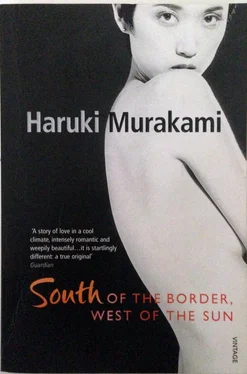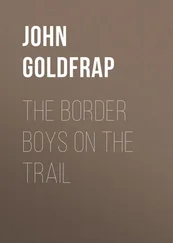“I have no idea. The construction business isn’t exactly my field.”
“Look out at Tokyo here. See all the empty lots around? Like a mouth full of missing teeth. If you look down from above like this, there it is for all the world to see, but walk around town at ground level and you’ll miss it. There used to be old houses and buildings on those lots, but they’ve been torn down. The price of land has shot up so much old buildings aren’t profitable anymore. You can’t charge high rent, and it’s hard to find tenants. That’s why they need newer, bigger buildings. And private homes in the city—well, people can’t afford their property taxes or inheritance taxes. So they sell out and move to the suburbs. And professional real estate developers buy up the old houses, put ‘em to the wrecking ball, and construct brand-new, more functional buildings. So before long all those empty lots will have new buildings on them. In a couple of years you won’t recognize Tokyo. There’s no shortage of capital. The Japanese economy’s booming, stocks are up. And banks are bursting at the seams with cash. If you have land as collateral, the banks’ll lend you as much as you possibly could want. That’s why all these buildings are going up one after another. And guess who builds them? Guys like me.”
“I see,” I said. “But if all those buildings are built, what will happen to Tokyo?”
“What will happen? Well, it’ll get more lively, more beautiful, more functional. Cities reflect the way the economy’s going, after all.”
“That’s all well and good, but Tokyo’s already choked with cars. Any more skyscrapers, and the roads will turn into one huge parking lot. And how’s the water supply going to keep up if there’s a dry spell? In the summer, when people all have their air conditioners on, they won’t be able to keep up with the demand for electricity. The power plants are run by fuel from the Middle East right? What happens if there’s another oil crisis? Then what?”
“Let the government figure that out. That’s what we’re paying high taxes for, right? Let all those Tokyo University grads rack their brains. They’re always running around with their snooty noses in the air—like they’re the ones who really run the country. Let them put their pointy heads to work for a change. I don’t have the answer. I’m a simple builder. Orders for buildings come in, and I build ‘em. That’s what you call market forces, am I right?”
I said nothing. I hadn’t come all the way here to debate the Japanese economy.
“Anyhow,” he said, “let’s drop all this complicated stuff and go grab a bite. I’m starving.”
Getting in his huge black Mercedes, we drove to his favorite grilled-eel restaurant, in Akasaka. We were shown to a private room in the back, where we settled in for a meal. It was the middle of the day, so I only sipped a bit of the sake, but my father-in-law threw back one cup after another.
“You said you had something you wanted to talk about?” I asked. If it was bad news, I’d rather get it out of the way first.
“I have a favor to ask,” he said. “Nothing really big. I just need to use your name for something.”
“My name?”
“I’m starting a new company, and I need to use somebody else’s name as the founder. You don’t need any special qualifications. Just your name. I promise it won’t cause you any trouble, and I’ll make it worth your while.”
“Don’t worry about that,” I said. “If it will help you, you can use my name as many times as you want. But what kind of company are you talking about? If my name’s going to be listed as the founder, I might as well know that much.”
“Well, to tell you the truth, it’s not an actual company,” my father-in-law answered. “It’s a company in name only, I should say. It doesn’t really exist.”
“A fake company, in other words. A dummy company.”
“Guess you could say that.”
“What’s the point? Is it a tax dodge?”
“Hmm … not exactly,” he said reluctantly.
“Bribes?” I ventured.
“Sort of,” he said. “I’ll be the first to admit this isn’t the greatest thing in the world to be involved in. But in my line of work you have to.”
“Well, what if some problem develops?”
“There’s nothing illegal about forming a company.”
“I’m talking about what that company does.”
He took a cigarette out of his pocket and lit it with a match. And exhaled smoke into the air above him.
“There won’t be any problems. Even if there were, anybody with half a brain could see that you just lent your name to it. Your wife’s father asked you to let him use your name, and you did. No one’s going to hold you responsible.”
I didn’t say anything for a while. “Where are all these bribes going to end up?”
“You’re better off not knowing.”
“Tell me more about these so-called market forces,” I said. “Is it going to end up in some politician’s pocket?”
“A little,” he said.
“Bureaucrats’?”
My father-in-law stubbed out his cigarette in the ashtray. “That would be graft, wouldn’t it. They’d arrest me.”
“But everybody in your business does it, right?”
“I suppose,” he said. And he made a pained face. “But not to the point where they’re arrested.”
“What about the yakuza? They’re pretty helpful when it comes to buying up land, aren’t they?”
“I’ve never gotten along with them. Anyhow, I’m not trying to corner the market. It’s lucrative, but I don’t do it. As I said, I’m just a simple builder.”
I sighed deeply.
“I knew you wouldn’t like this,” he said.
“It doesn’t matter if I like it or not, since you’ve already included me in the equation and gone ahead, right? On the assumption that I’d agree.”
“I’m afraid you’re right.” He laughed weakly.
I sighed again. “Dad, to tell you the truth, I don’t like this kind of thing. I don’t mean because it’s illegal or anything. But I’m just an ordinary guy, living an ordinary life. And I’d rather not get involved in backroom deals.”
“I’m well aware of that,” he said. “So leave it all to me. I won’t leave you hanging out to dry. If I did, then Yukiko and the children would be involved too. And I’m not about to have that happen. You know how much my daughter and grandchildren mean to me.”
I nodded. I couldn’t very well refuse his request. It depressed me. Little by little, I would get snared by the world out there. This was the first step; first I say yes to this, then later on it’ll be something else.
We ate some more. I drank tea, while my father-in-law put away the sake at an even faster clip.
“How old are you now?” he suddenly asked.
“Thirty-seven,” I replied.
He looked at me fixedly.
“Thirty-seven’s the age when you play around the most,” he said. “Work’s going well, your confidence is up. So women come to you, right?”
“In my case, not that many, I’m afraid.” I laughed, studying his expression. For a second I panicked, positive that he’d found out about me and Shimamoto, and that’s why he asked me here today. But he was just making small talk.
“When I was your age I played around quite a bit. So I won’t tell you not to have affairs. It’s kind of strange for me to be saying this to my daughter’s husband, but actually I think a fling or two on the side isn’t all bad. It refreshes you. Get it out of your system every once in a while, and your home life will improve; you’ll be able to concentrate on work too. So if you were to sleep around with other women, I for one wouldn’t say a word. Playing around’s okay by me, but be very careful in choosing your partners. Get involved with the wrong person, and your life goes down the toilet. I’ve seen it happen a million times.”
Читать дальше












